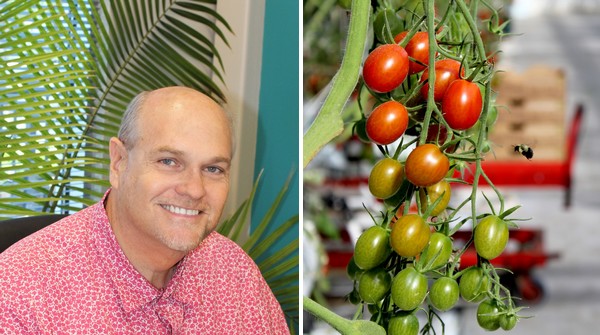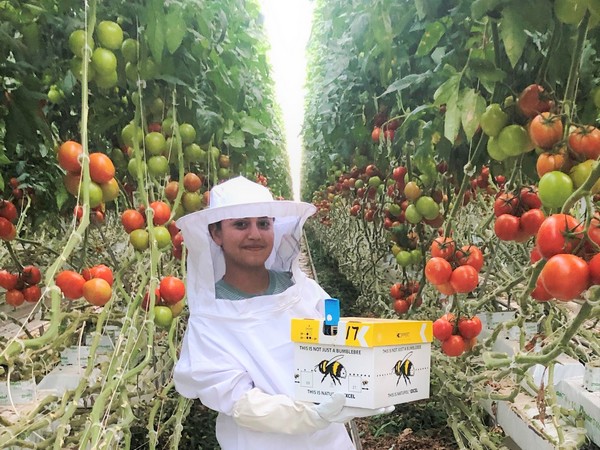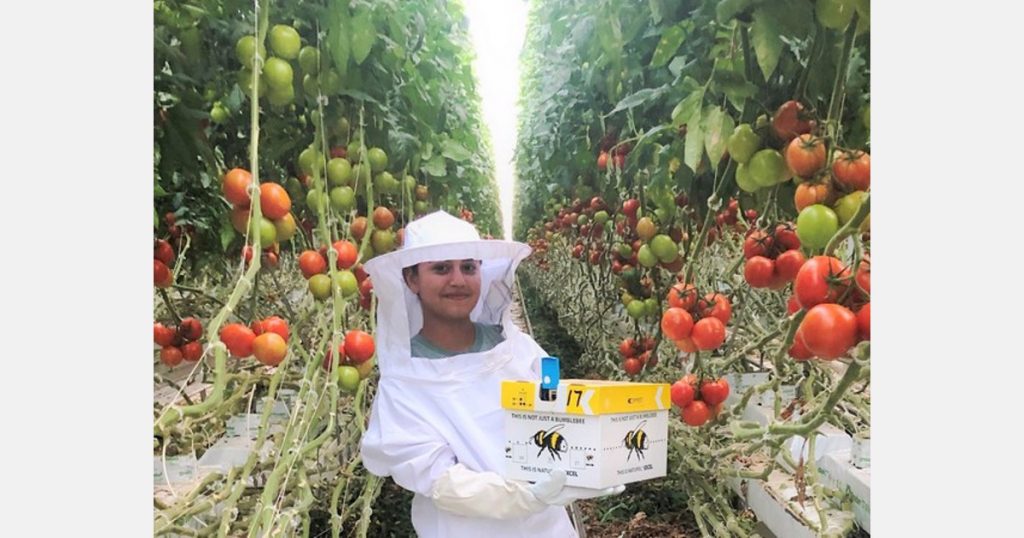Pesticides are used in agriculture to keep plants healthy from pesky pests. But, beneficial insects are also used in farming to reduce the need for chemical pesticides and help facilitate the healthy growth of produce.
Integrated Pest Management (IPM) is a method used to reduce the need for chemicals in agriculture while optimizing plant health. Among indoor farmers, especially hydroponic greenhouse growers (and more specifically high-tech Controlled Environment Agriculture (CEA), the type of farming Village Farms growers engage in) an IPM program was implemented with success in the greenhouse industry thanks in large part to the contribution of Village Farms.
 Left: Dr. Mike Bledsoe; right: IPM method to reduce the need for chemicals in agriculture.
Left: Dr. Mike Bledsoe; right: IPM method to reduce the need for chemicals in agriculture.
Village Farms’ growers monitor every aspect of growth. Mike Bledsoe, PhD and vice president of food safety and regulatory affairs at Village Farms, was instrumental in developing its food safety program. He helped develop a pesticide registration solution for the greenhouse industry at large. Dr. Bledsoe, in conjunction with the IR-4 Project, who supports registrations for specialty crops like tomatoes, has worked to register biologicals for the edible plant industry. Today, the food safety team headed up by Dr. Bledsoe works with the company’s growers on an IPM program, implemented in all greenhouses in North America.
Among these insects, bees are prolific pollinators responsible for pollinating about 75 percent of the world’s crops. Village Farms employs about two Bumble beehives per acre to pollinate our plants and keep them thriving.
The goal of IPM is to respond to harmful pests with effective, safe, low-risk options. When appropriate, Village Farms administers organic pesticides on crops. The Organic Materials Review Institute (OMRI) approved pesticides used and they have a very short half-life –meaning no residual chemicals are left by the time the produce hits the grocery store shelves.
 Yamilee Galindo Colomo of Village Farms food safety team in Texas.
Yamilee Galindo Colomo of Village Farms food safety team in Texas.
IPM can be used to the fullest in Village Farms greenhouses. The glass enclosure around the plants allows for growers to account for many variables. The temperature, amount of water to the plant and sunlight exposure, and more can be modified in our greenhouses to allow for optimal growth. This allows for more efficient use of resources.
“The IPM program has made an enormous impact on the industry,” says Dr. Bledsoe. “The work we have done over the past several decades has made greenhouse growing throughout North America an even more sustainable growing practice. We have been able to stay ahead of the growing safety expectations that our customers now require.”
To find out more about Village Farms’ growing methods and sustainability growing practices, check out the Good for the Earth program.
 For more information:
For more information:
Helen L. Aquino
Village Farms International Inc.
Tel: +1 (407) 936-1190 ext. 312
haquino@villagefarms.com
www.villagefarms.com


